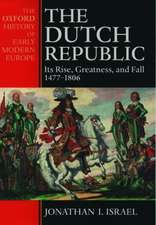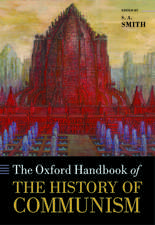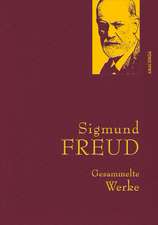Radical Enlightenment: Philosophy and the Making of Modernity 1650-1750
Autor Jonathan I. Israelen Limba Engleză Paperback – 18 iul 2002
In this wide-ranging volume, Jonathan Israel offers a novel interpretation of the Radical Enlightenment down to La Mettie and Diderot, two of its key exponents. Particular emphasis is placed on the pivotal role of Spinoza and the widespread underground international philosophical movement known before 1750 as Spinozism.
| Toate formatele și edițiile | Preț | Express |
|---|---|---|
| Paperback (1) | 360.70 lei 10-16 zile | +86.72 lei 5-11 zile |
| Oxford University Press – 18 iul 2002 | 360.70 lei 10-16 zile | +86.72 lei 5-11 zile |
| Hardback (1) | 904.23 lei 31-37 zile | |
| OUP OXFORD – 8 feb 2001 | 904.23 lei 31-37 zile |
Preț: 360.70 lei
Preț vechi: 432.96 lei
-17% Nou
69.03€ • 71.80$ • 56.99£
Carte disponibilă
Livrare economică 13-19 martie
Livrare express 08-14 martie pentru 96.71 lei
Specificații
ISBN-10: 0199254567
Pagini: 866
Ilustrații: 16pp halftone plates and 1 map
Dimensiuni: 156 x 233 x 44 mm
Greutate: 1.25 kg
Editura: Oxford University Press
Colecția OUP Oxford
Locul publicării:Oxford, United Kingdom
Descriere
Arguably the most decisive shift in the history of ideas in modern times was the complete demolition during the late seventeenth and eighteenth centuries - in the wake of the Scientific Revolution - of traditional structures of authority, scientific thought, and belief, by the new philosophy and the philosophies, culminating in Voltaire, Diderot, and Rousseau. In this revolutionary process which effectively overthrew all justification for monarchy, aristocracy,slavery, and ecclesiastical authority, as well as man's asendancy over woman and theology's domination over education and study, substituting the modern principles of equality, democracy, and universality, the Radical Enlightenment played a crucially important part. Despite the present-day interest in therevolutions of the late eighteenth century, the origins and rise of the Radical Enlightenment have been astonishingly little studied, doubtless largely because if its very wide international sweep and the obvious difficulties of fitting it into the restrictive conventions of 'national history' which until recently tended to dominate all historiography. The greatest obstacle to the Radical Enlightenment finding its proper place in modern historical writing is simply that it was not French,British, German, Italian, Jewish or Dutch, but all of these at the same time. In this novel interpretation of the Radical Enlightenment down to La Mettrie and Diderot, two of its key exponents, particular stress is placed on the pivotal role of Spinoza and the widespread underground internationalphilosophical movement known before 1750 as Spinozism.
Recenzii
Deserves to be widely read because it is an example of ground-breaking vastly well-informed and thoroughly new history
The scholarship is breathtaking. Israel has read everything, absorbed every nuance, followed up every byway ... Five years from now, our views of the Enlightenment will have been enormously influenced by Israel.
There is much to praise in Israel's majestic account of the Enlightenment and his detective work in placing Spinoza at the heart of it.
We have gained a much more detailed and fine-grained view of the sheer diversity and intellectual creativity not just amongst those who may have been influenced by Spinoza, but also amongst their critics, and those who may be deemed part of either the moderate Enlightenment or even a Counter-Enlightenment.



















